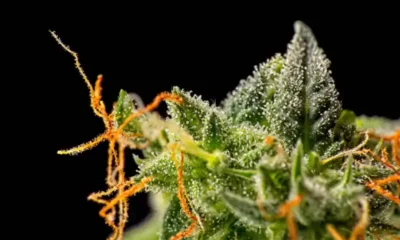Connect with us
Published
2 years agoon

As the legal cannabis market continues to boom in the United States and around the globe, lawmakers and the general public alike have continually interrogated the best way to handle potential cannabis-impaired drivers, for both medical and recreational weed. A new inquiry from the Australian state New South Wales (NSW) is now challenging the current status quo and would allow medical cannabis patients more flexibility to drive while using their medicine.
According to a report from The Sydney Morning Herald, Greens Member of Parliament Cate Faehrmann introduced the bill, which would provide a defense against drug driving charges for users of medicinal cannabis. The protections are similar to existing allowances for people prescribed medications like valium or methadone.
“Medicinal cannabis is far safer than morphine and other opioids on and off the road, but it’s only medicinal cannabis patients who test positive who face life-destroying drug driving charges,” Faehrmann said, adding, “Medicinal cannabis patients shouldn’t be forced to choose between driving and holding down a job and the only medicine that helps them.”
Current NSW laws, introduced in 2007 (before the federal legalized the use of medicinal cannabis in 2016), deem that a motorist can be charged if any trace of THC is detected in a driver’s system, either through a blood test or a roadside saliva test.
Dr. Joel Wren of the Society of Cannabis Clinicians spoke to the new NSW inquiry, saying the current laws are “archaic” and “nothing short of discrimnation.” Wren additionally called for NSW driving laws surrounding medicinal cannabis to be consistent with other prescription medications, like opioids.
“We are widely prescribing these medications every single day to many Australians and we are telling them it is okay to wait a while if you feel impaired, that some people do metabolise [sic] these medications differently,” Dr Wren said.
The issue looking forward ultimately still lies in determining the level of cannabis impairment for individuals. This has been a longstanding question across the globe, with one 2021 study looking at the correlation between states with legal cannabis and fatal vehicle collisions. The study found that cannabis impairment has a number of variables and improvements are needed to ensure the safety of the public and to protect the rights of cannabis users.
“We were really interested in trying to look and see if there was an association between legalization and increases in fatal motor vehicle collision,” said Sarah Windle, a lead author in the study. “The data weren’t there yet for Canada. So, we looked to the United States.”
Dr. Danielle McCartney from the University of Sydney’s Lambert Initiative for Cannabinoid Therapies told the inquiry she had done extensive work surrounding cannabis impairment, looking at driving simulators and computerized cognitive-function tests, but those tools aren’t necessarily practical for a roadside sobriety test.
“There are of course the field sobriety tests, which are used internationally in order to identify people who are not safe to drive,” McCartney said.
Pointing to the current roadside tests, The Lambert Initiative’s Professor Iain McGregor said cannabis users can pass tests like walking in a straight line fairly easily. Though, asking them to stand on one leg, close their eyes and remain upright can be challenging. Dr. Thomas Arkell of Swinburne University added that some people, particularly older folks, find some of these tests hard to tackle, inebriation aside.
The inquiry heard 180,000 applications for medical cannabis use had been approved by the Therapeutic Goods Administration as of October 2021, and as of September 2021, the number of active medicinal cannabis patients in Australia was estimated at 70,000.
The government indicated it would not support the bill in its submission to the inquiry, stating, “Medicinal cannabis is not comparable to other drugs, in part due to its widespread use and availability for non-medicinal purposes.”
The potential passing of the NSW bill will likely ultimately depend on the support from the opposition Labor party, which is preparing to contest an election in March.


Despite City Efforts, Hemp Shops Posing as Dispensaries Prevail in Las Vegas


Cannabis Community, Investors React to DEA Decision To Reschedule


Georgia Governor Signs Bill Establishing Licensing Requirements To Grow Hemp


Study: Psilocybin Enhances Meditation


Ohio GOP Lawmakers Debate Adult-Use MJ Priorities, Eye June for Regulation Approval


Taylor Swift Puts Narcotics Into All of Her Songs on ‘The Tortured Poets Department’
